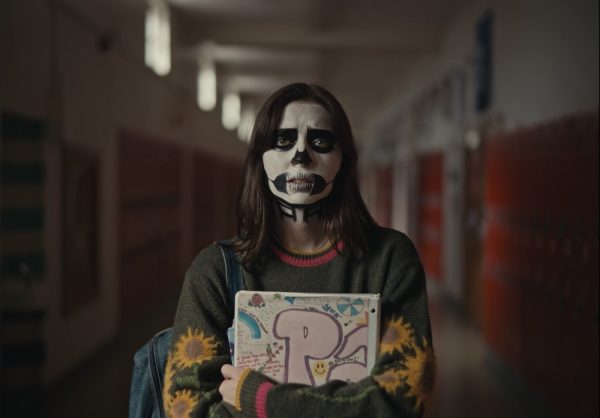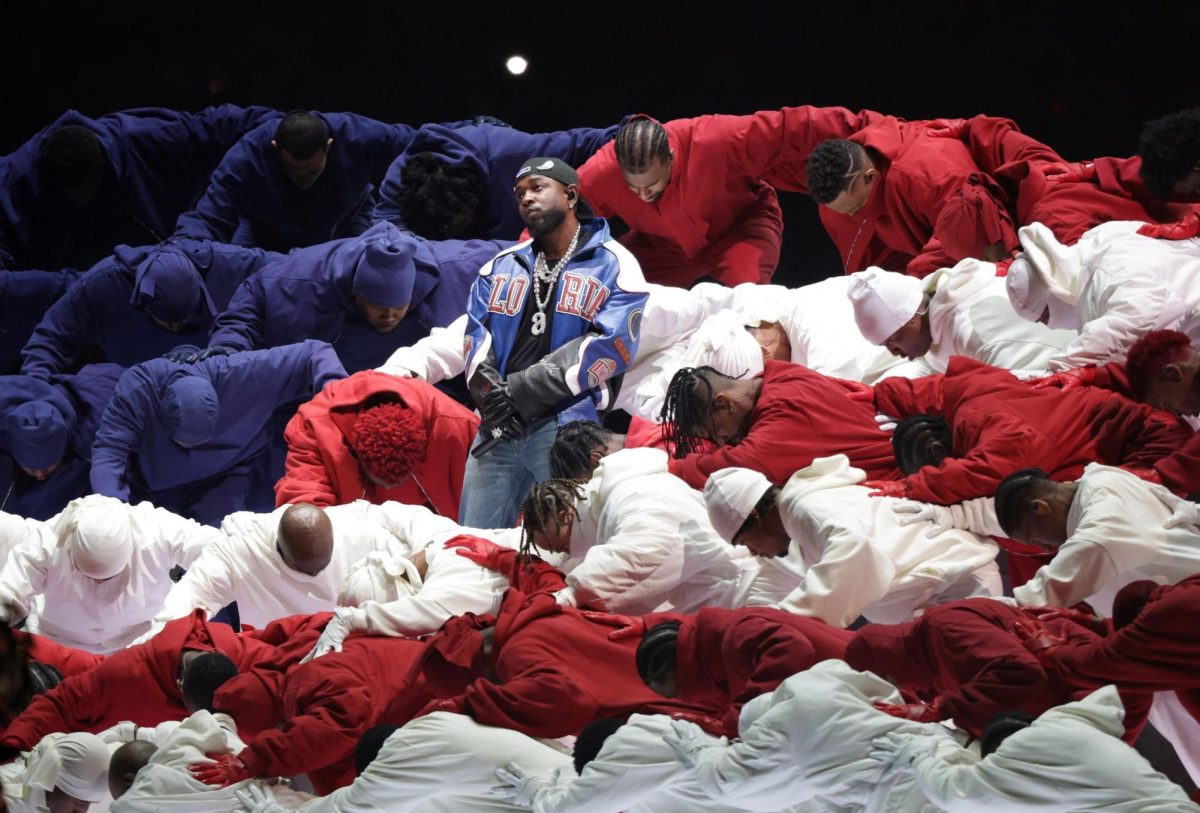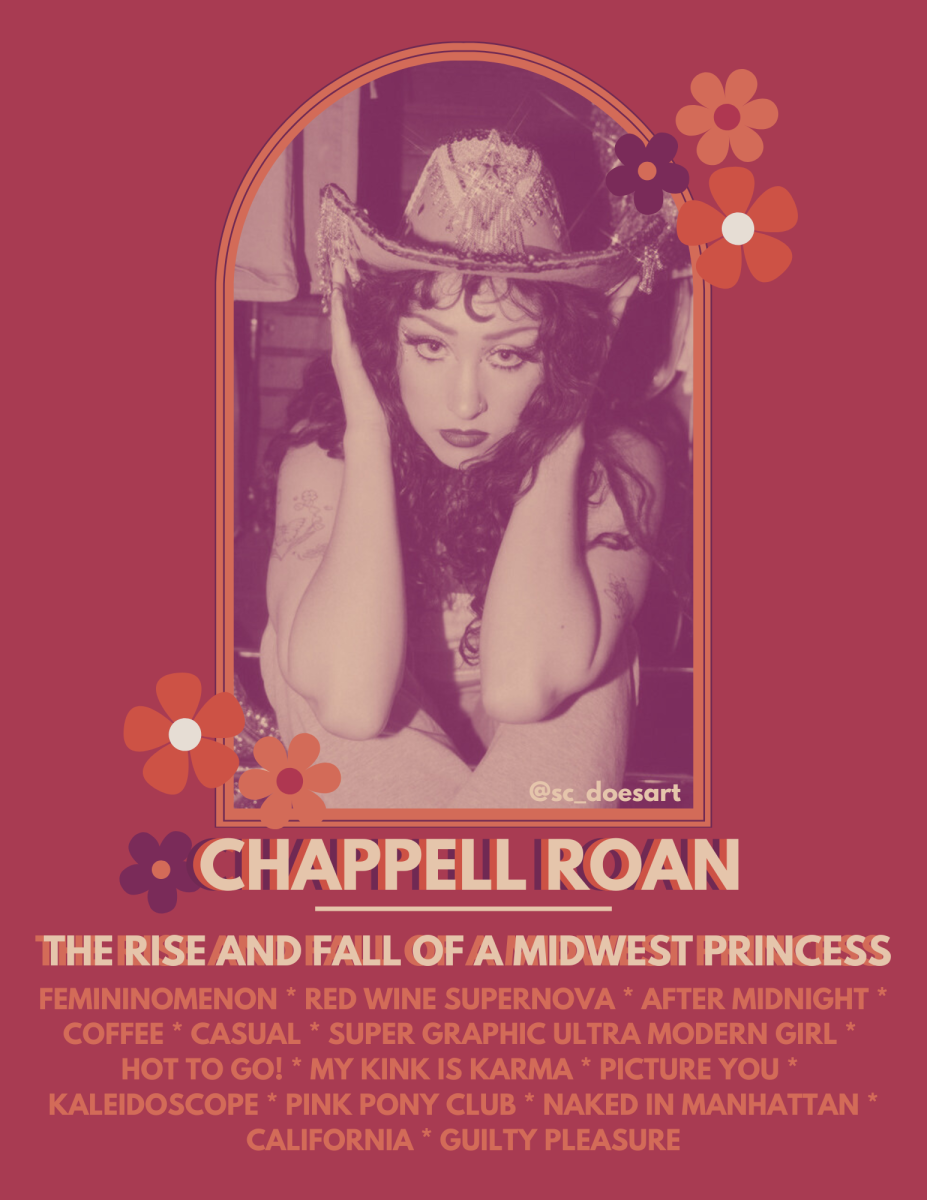Welcome back to this week’s edition of the Wichitan’s Song of the Week. The pick for this week is “Doomsday” by American indie-folk singer-songwriter Lizzy McAlpine.Released on April 8, 2022, as a single from her sophomore album “Five Seconds Flat,” “Doomsday” stands out as one of Lizzy McAlpine’s most evocative and heart-wrenching songs. It’s a powerful ballad that reflects on the end of a toxic relationship, using vivid apocalyptic imagery to convey the emotional devastation that comes with a breakup.
The song follows the thematic style of McAlpine’s album, which focuses on exploring complex emotions such as heartbreak, longing, and the bittersweet process of healing. In “Doomsday,” McAlpine captures the raw vulnerability of facing the inevitable end of a relationship, likening it to a personal end-of-the-world scenario, hence the title.
Lizzy McAlpine, born in Philadelphia, Pennsylvania, has quickly risen as a prominent figure in the indie music scene. Known for her distinctive voice and lyrical prowess, she often draws from her own life experiences to craft songs that resonate on a deeply personal level. McAlpine’s style blends elements of indie-folk, pop, and acoustic music, influenced by artists like Joni Mitchell, Phoebe Bridgers, and John Mayer. Her ability to convey complex emotions through poetic lyrics has earned her a devoted fan base and critical acclaim.
I first came across Lizzy McAlpine’s music earlier this year, and her introspective songwriting immediately caught my attention. “Doomsday” stood out as a Song of the Week choice not only because of its compelling narrative but also due to its intricate musical arrangement and the raw emotion that Lizzy brings to the track.
Musically, the song is performed in the key of C major, with a tempo of around 122 BPM. However, it’s not the technical aspects that make it special. The beauty of “Doomsday” lies in the delicate balance between McAlpine’s intimate vocal delivery and the song’s haunting, orchestral instrumentation. The arrangement features a mix of acoustic guitar, strings, and subtle percussion, creating a somber yet beautiful soundscape that perfectly complements the melancholic theme of the lyrics.

The production team opted for a minimalistic approach, allowing McAlpine’s vocals to take center stage. Her voice is filled with a quiet intensity, conveying a sense of resignation and sorrow as she sings about the end of the relationship. The use of reverb and layered harmonies adds depth to the song, giving it an almost ethereal quality that draws the listener in.
In the context of the broader album, “Doomsday” fits seamlessly into Lizzy McAlpine’s narrative in “Five Seconds Flat.” The album as a whole tells a story of love, heartbreak, and the process of moving on, with each song representing a different stage of this emotional journey. “Doomsday” is placed first in the tracklist, setting the tone for the rest of the album and preparing the listener for the emotional rollercoaster that follows.
The song begins with a poignant opening verse in which McAlpine reflects on the inevitability of the breakup. She sings about knowing that the end is coming, likening it to “her funeral” that she has to prepare for. This sets up a powerful metaphor for the relationship’s demise, presenting it as a personal apocalypse that she could not escape. The imagery she uses is vivid and cinematic, painting a picture of a world crumbling around her as she grapples with the loss.
In the chorus, Lizzy sings about the moment of realization when the relationship is truly over. She uses apocalyptic language, mentioning “Doomsday is close at hand” and “It’s only the death of me,” to emphasize the intensity of her emotions. The contrast between the dramatic imagery and her soft, almost whispered vocal delivery adds to the song’s emotional impact, making it feel both grand and intimate at the same time.
The second verse dives deeper into the toxic dynamics of the relationship. McAlpine reflects on how she tried to make things work despite knowing that it was doomed from the start. She sings about feeling manipulated and used, comparing her partner’s actions to the role of an anti-hero in a tragic story. The bitterness in her voice is palpable, yet there’s also a sense of sadness and regret as she acknowledges her complicity in staying in the relationship for as long as she did.
In the bridge, the song’s intensity builds as Lizzy’s vocals become more urgent. She sings about the future moments after the breakup, using metaphorical language to describe the emotional devastation she felt. It’s a powerful moment in the song, marked by swelling strings and a crescendo that mirrors the rising tension in the lyrics. The bridge serves as a turning point, where McAlpine fully confronts the reality of the breakup and how it changed her and she uses her “funeral” as a way to show the impact and scope of the change.
The song concludes with a haunting outro in which Lizzy repeats the phrase “Why would I? It’s only the death of me.” The repetition of this line, combined with the fading instrumental, creates a sense of finality as if the song itself is fading into the aftermath of the emotional apocalypse she’s described. It’s a chilling yet beautiful ending that leaves a lasting impression on the listener.

One of the reasons why “Doomsday” stands out is because of McAlpine’s exceptional lyricism. She has a gift for using poetic and metaphorical language to convey complex emotions, making her songs feel like storytelling rather than just music. In “Doomsday,” her lyrics are filled with vivid imagery and clever wordplay, capturing the feeling of heartbreak in a way that is both relatable and unique. My favorite line from the song is:
“No friends and family allowed
Only my murderer, you, and the priest who told you to go to hell
And the funny thing is I would’ve married you
If you’d have stuck around
I feel more free than I have in years
Six feet in the ground”
This lyric encapsulates the central theme of the song: the depth of the relationship and the sense of betrayal that comes with realizing that the happy ending she wanted never came to be.
“Doomsday” has resonated deeply with listeners since its release, becoming a fan favorite and earning praise from critics for its emotional depth and lyrical complexity. It’s a standout track in McAlpine’s discography, showcasing her growth as an artist and her ability to tackle difficult themes with grace and honesty.
At its core, “Doomsday” is a song about heartbreak, but it’s also about resilience. It’s about facing the end of something you once cherished and finding the strength to move forward, even when it feels like the world is crumbling around you. Lizzy McAlpine’s heartfelt performance and poetic lyrics make “Doomsday” a powerful and unforgettable track that captures the raw, messy reality of love and loss.
If you haven’t listened to it yet, I highly recommend giving it a try—you might just find yourself as captivated by it as I was.
I give “Doomsday” five out of five Mustangs.










